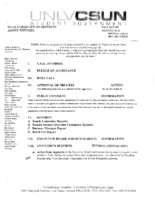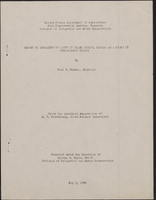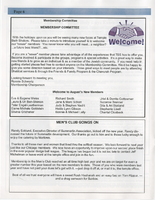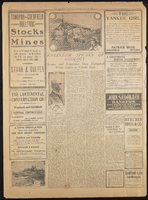Search the Special Collections and Archives Portal
Search Results

Transcript of interview with Lyn Robinson by Barbara Tabach, September 18, 2014
Date
Archival Collection
Description
One day in 2012, UNLV student Lyn Robinson spied a posting on the bulletin board for a photographer for the Sperling Kronberg Mack Holocaust Resource Center. She was an art major with a concentration on photography. She was also had a deep appreciation of the horror of the Holocaust and what the survivors she would take photos of had endured. Thus began a two year project, during which she took photos of over sixty survivors. Her images are preserved at UNLV Special Collections & Archives. Prints are displayed at the Sperling Kronberg Mack Holocaust Resource Center. On September 18, 2014, Lyn shared her work for this oral history recording. She is a native of Florida, daughter of a horticulturist father and pianist mother.
Text

Transcript of interview with Robert M. Fisher by DeeAnn Coombs, March 20, 1978
Date
Archival Collection
Description
Text

Meeting minutes for Consolidated Student Senate, University of Nevada, Las Vegas, June 24, 2006
Date
Archival Collection
Description
Text

Report on water spreading in Clark County, Nevada as a means of controlling floods, May 9, 1949
Date
Archival Collection
Description
Report on the efficacy of water spreading to disperse flood water in Southern Nevada. Under the immediate Supervision of A. T. Mitchelson, State Project Supervisor. Prepared under the direction of George D. Clyde, Chief, Division of Irrigation and Water Conservation
Text

Meeting minutes for Consolidated Student Senate University of Nevada, Las Vegas, February 8, 1990
Date
Archival Collection
Description
Text





